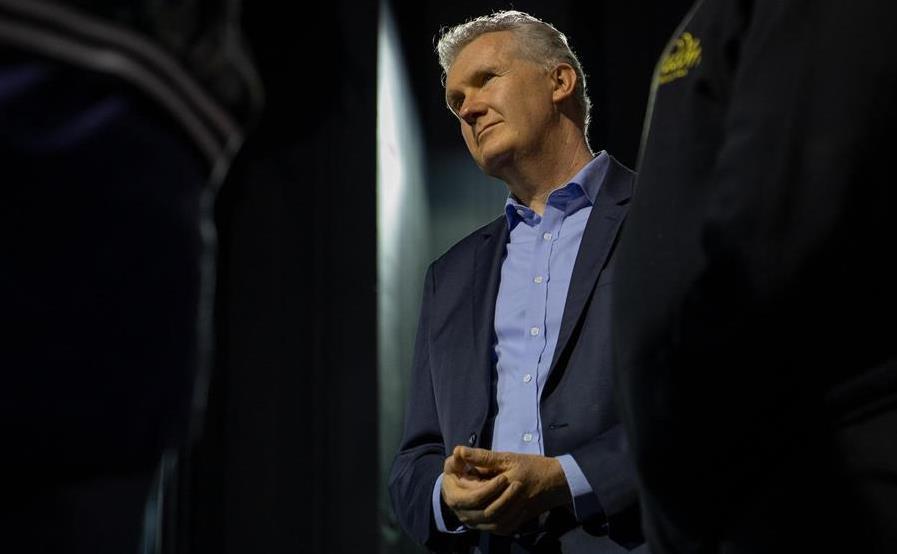Tony Burke MP, the Shadow Minister for the Arts, has criticised the Federal Government’s $250 million arts support package, following revelations this week that money won’t be made available to the sector until September or later.
‘Australia’s arts and entertainment sector waited more than 100 days for the Morrison Government to announce a coronavirus support package – but it’s already unravelling amid new revelations it will be months more until the money actually starts flowing,’ Burke said in a statement.
On Wednesday, the Senate inquiry into the Government’s response to the COVID-19 pandemic heard evidence from Dr Stephen Arnott from the Office for the Arts, who said that new funding from the support package would not be available for some months.
SENATOR KATY GALLAGHER: What’s your best estimate on actually getting money out the door? Presumably once the guidelines are settled you then have to go through an application process, assessment process….
DR STEPHEN ARNOTT: I would say several months from now until when the first payments will actually start to flow is probably a reasonable timeframe …
GALLAGHER: So it’s unlikely you would have money out in the first quarter of this financial year?
ARNOTT: We will do our very best but it would be towards the end. It would be towards the end.
Arnott’s testimony suggests that emergency relief funding for the sector won’t roll out until at least September or later.
Suggesting the government had already dragged its heels in announcing last week’s $250 million support package, Burke said: ‘That means grants won’t roll out for at least another three months. Having just endured a torturous 100-day wait to be noticed – [is the sector] in for another 100-day wait to be helped?’
He continued: ‘And when the money does finally start flowing Minister Paul Fletcher will have full control over approvals, it has been revealed.
‘That’s right, another Morrison Government minister with full discretion over a grants program, breaking with the long-held precedent of independent arms-length grants approval processes in the arts,’ Burke asserted.
‘Will grants unfairly favour Coalition electorates at the expense of more deserving recipients? Will it be just another Liberal-National pork-barrelling exercise?’ he said, in an apparent reference to the ‘sports rorts’ scandal and other recent pork barrelling claims.
Read: What the arts sector says about the Fed Government’s $250M relief package
The Senate inquiry into the impact of COVID-19 also heard directly from four arts sector leaders: Ros Abercrombie, Executive Director, Regional Arts Australia (RAA); Esther Anatolitis, Executive Director, National Association for the Visual Arts (NAVA); Kate Fielding, Program Director, A New Approach, Australian Academy of the Humanities; and Elizabeth Rogers, Chief Executive Officer, Regional Arts NSW.
Anatolitis also expressed concerns about the Federal Government’s arts support package in her evidence to the Senate inquiry.
‘I’ve got to say it is really difficult to see how individual artists, those from the small to medium sector, and the visual arts in general are going to be able to access those funds at all,’ she said.
This was of particular concern given that 64% of Australian galleries were unable to access JobKeeper, Anatolitis continued.
‘51% of public galleries are owned by local governments. Local government are the biggest owners of galleries and their collections in Australia; that’s regionally, in suburbs and elsewhere. And then another 13% are owned by universities, which, of course, also house our leading art schools. None of those have been able to access any kind of income support at this time.
‘Universities are also massive employers of artists as sessionals, academics, workshop presenters and so on. So the gaps here are enormous, unfortunately,’ said Anatolitis.
‘I’ve got to say it is really difficult to see how individual artists, those from the small to medium sector, and the visual arts in general are going to be able to access those funds at all.’
– Esther Anatolitis
With the Australian Bureau of Statistics releasing new figures this week demonstrating COVID-19’s impact on the cultural sector (payroll jobs in Arts and Recreation dropped by 23.9% between mid-March and mid-June, second only to job losses in Accommodation and Food Services), Fielding told the inquiry that the impact of COVID-19 goes well beyond those who work directly in the arts and culture sector.
This affects ‘…people from all states and territories, from the country and the city, from the outer suburbs and the inner, from all walks of life,’ Fielding said.
She called on the Government to create a national arts plan to ensure the positive benefits of art and culture were available to all Australians in the coming months.
‘Studies from around the world show that cultural and creative activities improve community connectivity and help individuals recover from the sort of disasters and traumas we have experienced over the past six months,’ said Fielding.
‘This broad relevance is why we are calling for the development of a National Arts and Culture Plan, modelled on the Sports 2030 plan, and the COVID-19 pandemic has made this more urgent.
‘This is about ensuring we have a rich and varied arts and cultural life with relevance and strength into the 21st century. Otherwise, we may as well live on Mars,’ Fielding said.
Read the full transcript of the arts sector’s presentation to the Senate Inquiry.
